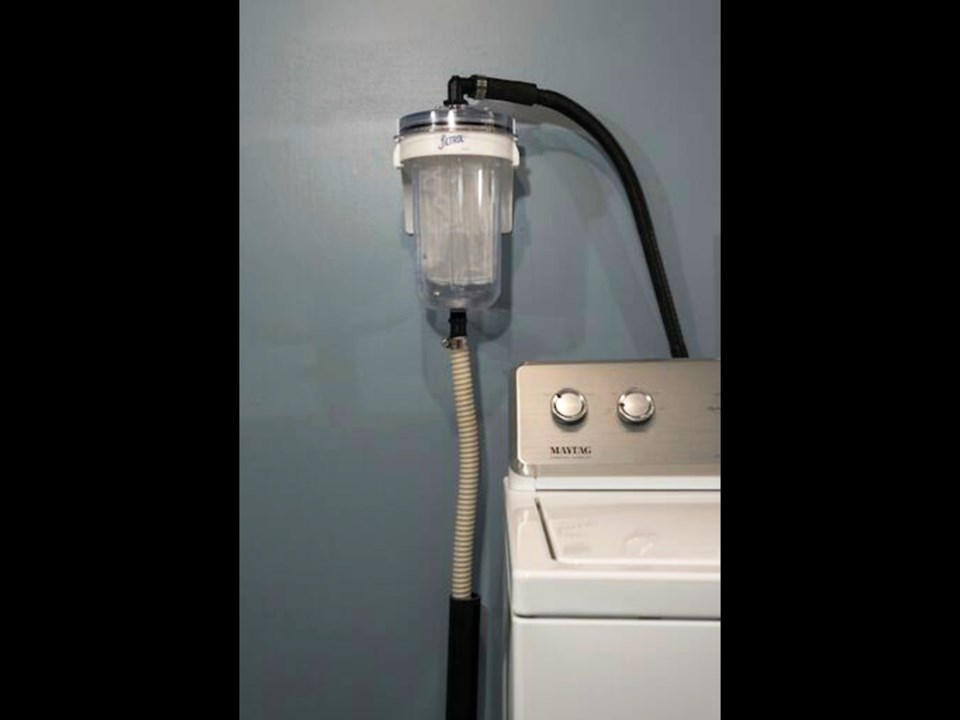Collingwood volunteers are needed to help a local charity build a case for adding filters to washing machines as a means to prevent microfibers from getting into lakes, rivers and streams.
Georgian Bay Forever would like to have 300 filters installed on washing machines in Collingwood capturing microfibers from the effluent before they end up in the wastewater treatment plant.
Another 80 volunteers are needed to reach the goal. The filters are free to volunteers through the Georgian Bay Forever Divert and Capture program, but those who participate will have to agree to keep the lint captured in the filters and hand it in for the project team to analyze and weigh.
Only homes in Collingwood on the town's wastewater service will qualify, and there has to be enough room to install the filter (about the size of a paper towel dispenser) in the laundry room close to the washing machine.
"Microfibre pollution is ending up in lakes and waterways," said Heather Sargeant, communications director for Georgian Bay Forever.
Microfibres, which are mostly made up of microplastics, are environmental pollutants that can disrupt the food web and have been found in microorganisms, fish, plants, and now human blood and lungs.
Sargeant said one of the biggest sources of microfibre pollution in water is washing machine effluent, because the fibres come off of clothes and textiles when they're being washed, whether they are natural or synthetic materials.
Since Georgian Bay Forever has been able to prove washing machine filters work to reduce the amount of microfibres ending up in wastewater with lab and real-world testing, the organization is continuing its work to gather evidence of their efficacy by measuring what gets diverted with the filters.
The filters used by Georgian Bay Forever for the Collingwood divert and capture program have been shown to capture up to 89 per cent of microwaste before it goes to the wastewater treatment plant and eventually into Georgian Bay.
You can sign up as a volunteer or find out more about qualifying for a microfibre filter on your washing machine online here.
Even if you don't qualify, there are things you can do to help. The following are tips from Georgian Bay Forever:
- Wash clothes less often
- Wash in cold water
- When you buy a new washing machine, consider a front loader which tend to pull fewer microfibres from clothing
- Avoid fast fashion and try to purchase more durable items
Amber Gordon and Ashley Morrison of Georgian Bay Forever will be in Collingwood at the Earth Day flag raising and community clean up on April 22 (starts at the library at 2:45 p.m.) and will be able to provide more information about microfibres and the work in the community to divert and capture waste before it ends up in Georgian Bay.
For more information on local Georgian Bay Forever projects, visit the website here.
You can also write a letter to your MPP in support of a private members bill to require washing machine filters be built in to all new washing machines. More information on the letter writing campaign is available here.

.png;w=120;h=80;mode=crop)

